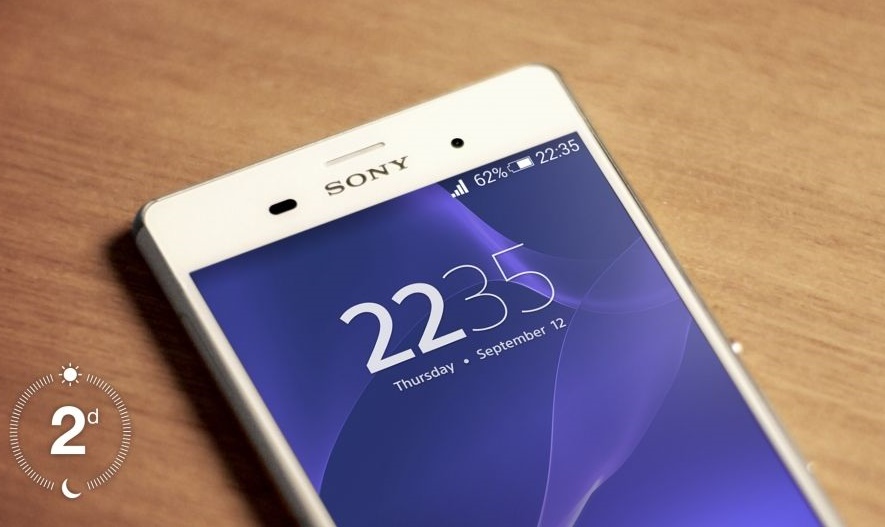Sony's 1,000 Mobile Layoffs Should Push Company To Rethink Strategy
According to a Reuters report, Sony plans to cut 1,000 jobs from its mobile division, following a series of quarters in which the company couldn't generate a profit with its smartphones. The jobs will be cut mainly from China and Europe.
All cuts will happen by the end of the fiscal year, ending in March 2016. The company is expected to report these cuts in the February 4 earnings report.
Although Sony has gotten much better at building quality smartphones, the company hasn't been able to compete with the likes of Apple, Samsung, LG, and even HTC, which has much better access to the U.S. market, for example, than Sony does.
Sony has had a hard time entering the U.S. market with its touchscreen smartphones. The U.S. carriers already have firmly established relationships with companies such as Apple, Samsung, HTC, LG and Motorola, and they may not be willing to agree to a deal to promote Sony's phones without major concessions from Sony.
Sony has been able to maintain a relatively positive relationship with Verizon and T-mobile, but even then Verizon usually prefers to have Sony modify the device and the name slightly to make it more uniquely Verizon. This ends up taking away from Sony's brand strength for a certain smartphone model, by splitting that model into different brands. Also, Sony's inability to have a major launch in the U.S. across all carriers, something Apple, Samsung, LG and even HTC are able to do, hurts the popularity of that device in the U.S.
The Xperia Z flagships have seen some success internationally thanks to their slick designs and long battery life, but they haven't been sold in high enough numbers to make the company's mobile division profitable. This may be due to a lack of a big marketing push. Being unprofitable can create a negative feedback loop for Sony, which means less and less money for R&D and marketing, so future devices could end up even less successful.
The new layoffs may also put further pressure on its mobile division. That may also be a good thing, if it forces the company to come up with with creative new ways to compete against more established smartphone players on a shoestring budget. Smartphone makers often tend to replicate each others' features, which sometimes is a good thing, because it increases quality throughout the industry and more people get to use the same kind of features. When done for too long, though, it creates stagnation in the industry and a lack of true competitiveness.
Get Tom's Hardware's best news and in-depth reviews, straight to your inbox.
Sony should continue to focus on delivering 2+ days of battery life across its range of touchscreen smartphones, but it should also renew its focus on cameras. As the provider of smartphone sensors for some of the biggest mobile companies (including Apple), and having a long history of making high-end cameras, Sony has no excuse for not making smartphones with the absolute best cameras on the market.
Yet we often see Sony's flagship devices fall behind Apple and Samsung (and sometimes others as well) when it comes to the quality of shots from its phones' cameras. If Sony wants to turn its mobile future around, it may want to apply its core strengths more intensively in its mobile products.
Update, Jan 28, 10:45am: Updated to include information that Sony is selling subsidized devices through Verizon and T-Mobile.
Follow us @tomshardware, on Facebook and on Google+.
Lucian Armasu is a Contributing Writer for Tom's Hardware US. He covers software news and the issues surrounding privacy and security.
-
remyj I really hope Sony can pull through this slump. From what I have read, both the full size and compact Z series phones are very nice units but also very expensive. They need to be extremely high quality and have the best performance feature for feature to be able to command the high prices and compete.Reply
Maybe a new distinguishing feature would help too. I know the market poo poos physical keyboards now but there is a small very vocal bunch of Android fans that want one. If Sony put a quality physical keyboard in the Z3 compact, I would max out my credit card to buy one. They may not sell big numbers of them by Apple or Samsung standards but being the only phone with a keyboard might generate big enough numbers for them to make some money. -
groundhogdaze Sony could do a better job with their marketing. I just bought a Sony 10.1" Z tablet and it's the near perfect tablet for me after going through a dozen other tablets and an Ipad 3. It wasn't even on my radar until I saw it discounted for $170 and decided to give it shot after selling my Kindle HDX 8.9.Reply -
Martell1977 Sony makes a phone? Had no idea, must not be anything special considering there are only Samsung, HTC, Apple and a few Nokia's at my local Verizon stores.Reply -
StevenInCA The Sony Z3 is actually a really nice phone. Build quality is good, its waterproof and the battery easily lasts 2 days with decent usage. I wish more manufactures would spend more time on battery life than trying to make their phone really thin!Reply -
StevenInCA The Sony Z3 is actually a really nice phone. Build quality is good, its waterproof and the battery easily lasts 2 days with decent usage. I wish more manufactures would spend more time on battery life than trying to make their phone really thin!Reply -
Jocar101964 People tend not to forget that Sony has always had their technical rules, being not entirely compatible in order to force their clients to buy peripherals from them. That was the time with their TV's, VHS's and DVD's.... And people tend not to forget that after being f*****d by them so many times. Ohhhhh.... and their phones are crap.Reply -
condorxiii This is a great idea and if their API's are simple enough to integrate with I hope SC2 and LoL get onboard. Not that the others aren't good, but this could be really cool for small universities and colleges or company tournaments (I've mostly worked for tech companies - so it's a thing). I'm not a Razer hater so I don't mind it's them, but I know some people will shy away from it, I hope they look past that. This could be cool, and even if you don't like Razer and it's successful, I'm sure it'll pave the way for other products (assuming there aren't others I'm not aware of yet).Reply -
DarkhunterCZ I cant believe it. Xperia Z3 Compact, Xperia Z3, Xperia Z3 Compact are the best in their class. I own Xperia Z3 Compact and its so good phone...I hope my next phone will be Xperia.Reply -
GMDS44 I have an Xperia Z2 and I can tell you that I've never had a phone that:Reply
-Lasted as long as my xperia (battery and physical robustness wise)
-Had incredible hand feeling and feels premium.
-Had efficient waterproofing capabilities -
marclee37 most users pick samsung, i pick samsung too.Reply
use to the menu that most other users do, would not get too wrong if using it.
samsung's design are more classy, elegant. sony's are often a bit too young, advanced, experimental. front/ back full glass etc. non-removable battery. I would not switch to sony in foreseeable future. releasing 6.4" phone is kind of question. i wonder what is this company thinking. not considering how a user actually use the device? i could not trust its design and get its product. if it has full range: 6.4", 6.1", 5.8", 5.5", etc. it is a different story.
samsung's success is it has the most complete range, better suit more user's need. having consistent designs over the years. once used to it, keep on using it. until this brand turns bad severely. like the previous Nokia.

